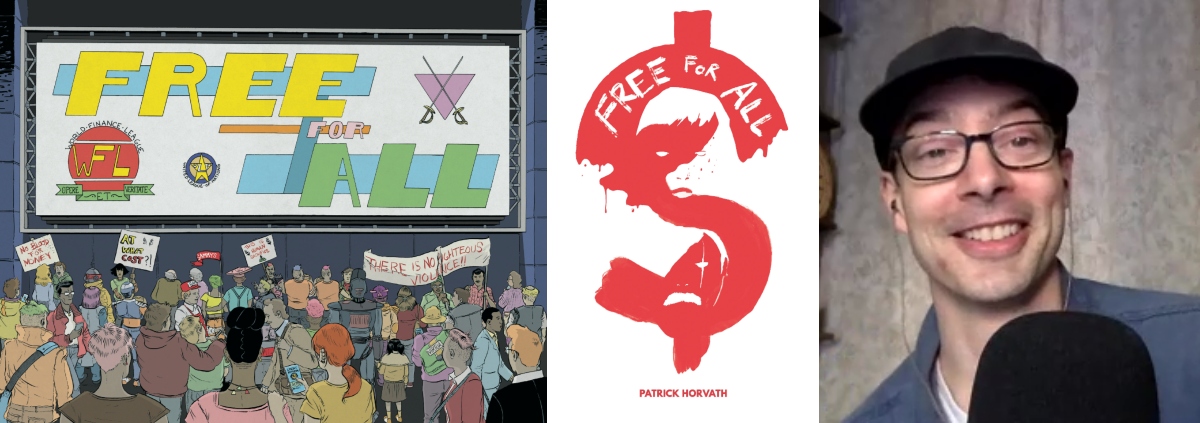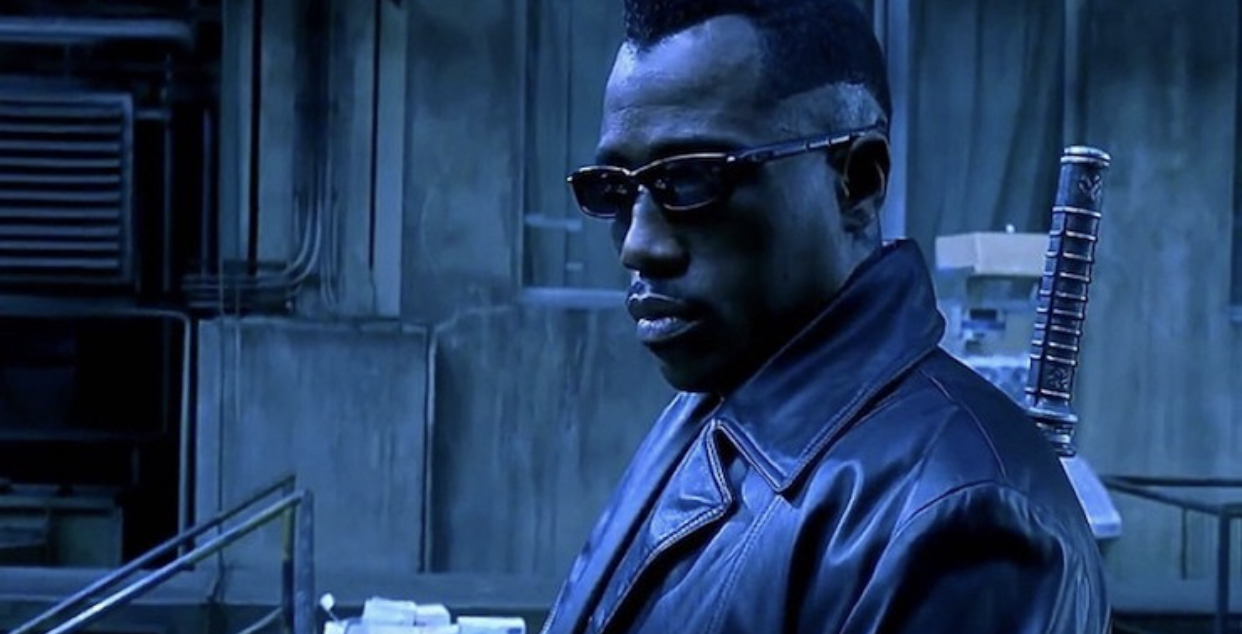
(ctr l-r.) Laura Harrier stars as Patrice and Corey Hawkins as Stokely Carmichael in Spike Lee’s BlacKkKlansman, a Focus Features release.
Credit: David Lee / Focus Features
In this amazingly true story, director Spike Lee has captured the humor, real essence of this ridiculous story of a black cop going undercover to infiltrate the Ku Klux Klan in the 1970s in BlacKkKlansman.
The film is based on a memoir by Ron Stallworth, an African-America police officer in Colorado, who successfully infiltrated a local chapter of the KKK and managed to embarrass the national leader of David Duke.
The film stars John David Washington, Adam Driver, Laura Harrier, Corey Hawkins and Harry Belafonte.
LRM Online had a phone interview with Corey Hawkins last month on his rule as Kwame Ture, or also known as Stokely Carmichael. We discussed about the research on his role, working with Spike Lee and most importantly, the speech in the movie.
BlacKkKlansman is playing in theaters today.
Read our interview transcript below.
LRM: I watched BlackkKlansman. Fascinating movie. I’m curious. How did you manage to land a role in the Spike Lee movie?
Corey Hawkins: I met with Spike maybe a month or so before the film. We get a bit of a work session with a in room and we would go through. I really don’t have much to do. [Laughs] But, at the same time, it’s an integral part of the movie. He told me to think about it. I was like, “Absolutely man!” I’ll be there. I think we worked through the speech. It has gone through a few different iterations. For me, I thought the speech was powerful. It still works today.
LRM: That’s pretty awesome. Did you have to do any research on Stokely Carmichael, yourself?
Corey Hawkins: Yeah. Spike is very passionate about all of his films. He is very passionate about his characters as well. There was a lot of digging [into the background]. He sent me a book. I cam to New York to talk to him about it. This an opportunity to kind of do a character who passed on. There was that legacy in this world. It was a lot of work, man. It was a lot of picking up his mannerisms. There was a little bit of Caribbean in him. There was his charm. He knows how to invigorate people. That’s the kind of highlights of him. I needed to tap into it.
LRM: Did you know about him before you did the movie?
Corey Hawkins: I knew about him. I knew about that he had changed his name to Kwame, which a lot of people don’t know. A lot people referred to him as Kwame Ture in the film. I knew about it because I had a grandfather who was very much grew up in the Civil Rights Era. I grew up very political. He really embodied to what he represented in the movie. As somebody of his stature, he was very powerful.
LRM: Now you have him imitated several iconic characters in black history. Do you feel being under pressure to get it right?
Corey Hawkins: Well, you only feel under pressure to get it right if you are doing an imitation. I wouldn’t call it imitation for me. A lot of people will mimic. I don’t think I’m one of them. I’m not as good as sounding just like the guy or by doing this and doing that. For me, it’s all about behind the eyes. It’s about what makes these characters tick. It’s on what motivates them and what makes them move. It’s like the difference of taking your coffee black or coffee with sugar. It really get down with the characters for me. Like for Dre [in Straight Outta Compton], he was there on stage. I had to consider in terms of what he represented in the film.
With Stokely, there is that pressure. There is the pressure to get it right. It’s a Spike Lee film. You have no other choice but to get it right. At the same time, the only pressure that you can put on yourself is just to do justice to him. Spike said, “You want to honor it. Honor his spirit.” You see them in the watching him speak truth to power. If we can extract that just a little bit, then we’ve done our job. That’s kind of how I looked at. I don’t see it as a pressure to get anything right. For me, it’s mostly just kind of just check it off. It’s playing. Ultimately, at the end of the, it’s being in costume and character. Spike was very adamant about that. It was important to him and it was important to me.
LRM: Since now you have worked under Spike Lee, how great is he and how different is he from the other directors you have worked before?
Corey Hawkins: Eeverybody tries to get into a Spike Lee movie. I don’t care on what kind of actor you are. You want to do a Spike Lee joint. It’s exciting, man! On set, we were playing and relaxing. He was like basically DJing. In between setups, he had these playlists and playing oldies to put all these extras into the time. that he would sit down with the actors, he would actually talk to them about what was going on during the time. He would get people excited and leaned in. I think that that comes from his experience, you know? He is a celebrated famous director now, but before he worked the streets. He been doing movie below micro budget. It was that leaning on your extras and the atmosphere. He had to really step up to the plate. Watching him work the room, he’s not only navigating the camera work and the lighting, he just really having a hand in everything. It’s just amazing on what he does. It’s just refreshing. A lot of directors should take a page out of this.
LRM: Excellent. Your pivotal scene is a very inspirational speech. How did you want to approach that? It was actually a very good scene.
Corey Hawkins: I knew everybody was sort of leading up to it. It’s crazy when you think about it, the entire day is setup to lead to that. Everybody’s there. Everybody’s ready. Everybody’s waiting on that scene. That’s all we did the whole day. For me, I got the changes to script that early that morning, We just had to take it and roll with it. I remembered the first time like he’s up there looking out into the audience. It was also the first time that they were hearing these words before with these extras, Spike Lee and the core cast. It was the first time to be hundreds of people will actually hearing it.
They were hearing the talk about cops shooting down black people like dogs. It’s almost representing on what they are living right now. At the same time, it’s been going on since the 1970s. It’s indicative of our history. All I could do is just speak to them. There is no acting. It just became a dialogue. They will call back. They yell back at the ideals. Spike would yell something out. Everyone was absorbing this. Now, juxtapose that with Harry Belafonte at the end of the film. With him speaking these young black union members. It’s a really good job of Spike setting that up. I’m honored to have that job.
LRM: Well, thank you for this conversation. I do have to admit this. This is one of my favorite movies this year. I love the humor and message that actually puts out.
Corey Hawkins: Right? I think it’s good. I think it’s one of Spike Lee’s better films he put out in a long time. It’s good to see him still killing it. To see this cast with JD [Washington], Adam [Driver] and Topher [Grace]. Everybody was on. I’m just lucky to get it up and be there.
LRM: Thank you. Thank you very much.
Corey Hawkins: Thank you, man. Alright, good.
BlacKkKlansman is playing in theaters today.
Source: LRM Online

 FOR FANBOYS, BY FANBOYS
Have you checked out LRM Online’s official podcasts and videos on The Genreverse Podcast Network? Available on YouTube and all your favorite podcast apps, This multimedia empire includes The Daily CoG, Breaking Geek Radio: The Podcast, GeekScholars Movie News, Anime-Versal Review Podcast, and our Star Wars dedicated podcast The Cantina. Check it out by listening on all your favorite podcast apps, or watching on YouTube!
Subscribe on: Apple Podcasts | Spotify | SoundCloud | Stitcher | Google Play
FOR FANBOYS, BY FANBOYS
Have you checked out LRM Online’s official podcasts and videos on The Genreverse Podcast Network? Available on YouTube and all your favorite podcast apps, This multimedia empire includes The Daily CoG, Breaking Geek Radio: The Podcast, GeekScholars Movie News, Anime-Versal Review Podcast, and our Star Wars dedicated podcast The Cantina. Check it out by listening on all your favorite podcast apps, or watching on YouTube!
Subscribe on: Apple Podcasts | Spotify | SoundCloud | Stitcher | Google Play



